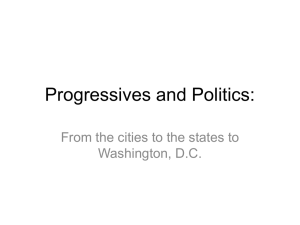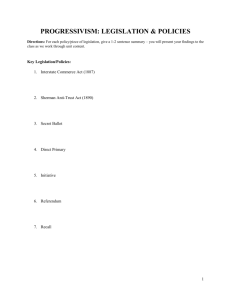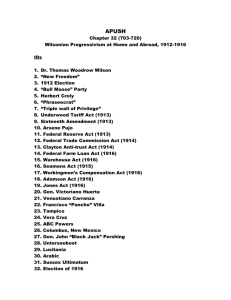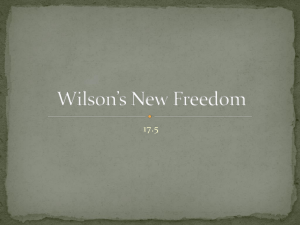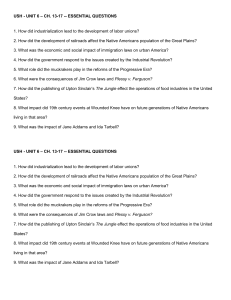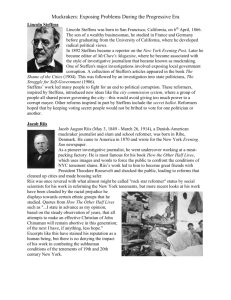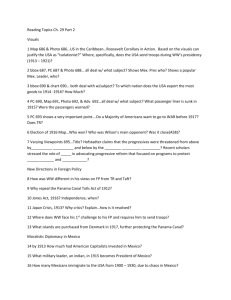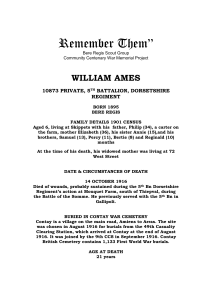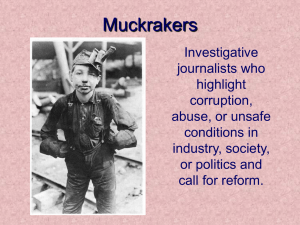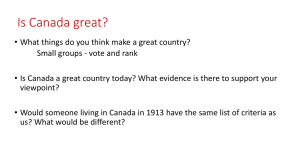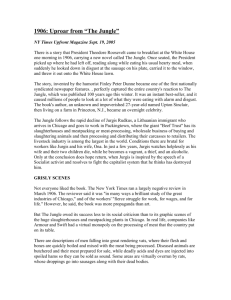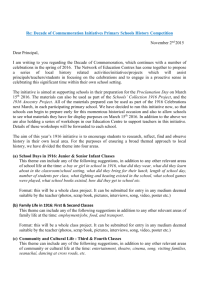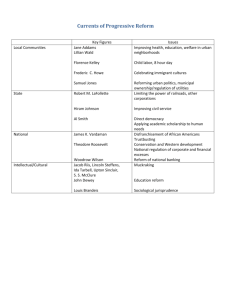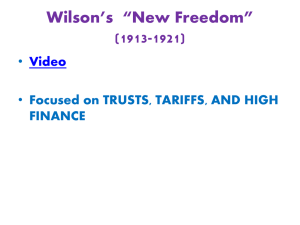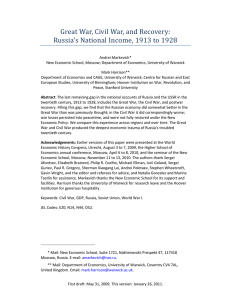Muckrakers and Progressive Era Legislation
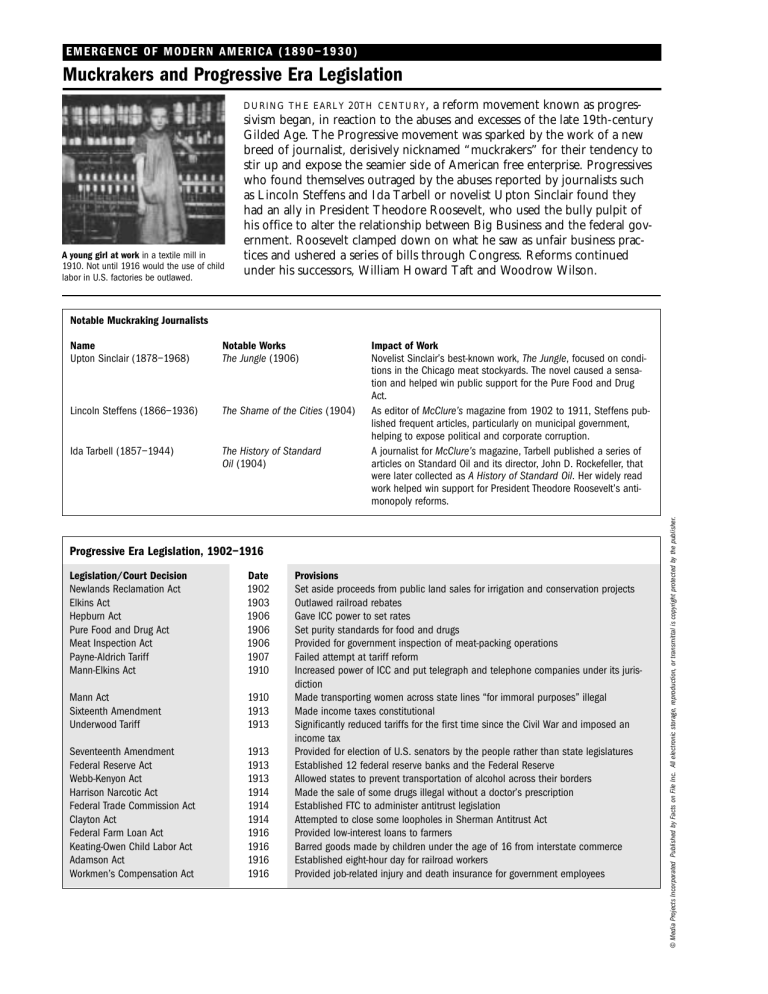
E M E R G E N C E O F M O D E R N A M E R I C A ( 1 8 9 0 – 19 3 0 )
Muckrakers and Progressive Era Legislation
A young girl at work in a textile mill in
1910. Not until 1916 would the use of child labor in U.S. factories be outlawed.
DURING THE EARLY 20 TH CENTURY , a reform movement known as progressivism began, in reaction to the abuses and excesses of the late 19th-century
Gilded Age. The Progressive movement was sparked by the work of a new breed of journalist, derisively nicknamed “muckrakers” for their tendency to stir up and expose the seamier side of American free enterprise. Progressives who found themselves outraged by the abuses reported by journalists such as Lincoln Steffens and Ida Tarbell or novelist Upton Sinclair found they had an ally in President Theodore Roosevelt, who used the bully pulpit of his office to alter the relationship between Big Business and the federal government. Roosevelt clamped down on what he saw as unfair business practices and ushered a series of bills through Congress. Reforms continued under his successors, William Howard Taft and Woodrow Wilson.
Notable Muckraking Journalists
Name
Upton Sinclair (1878–1968)
Lincoln Steffens (1866–1936)
Ida Tarbell (1857–1944)
Notable Works
The Jungle (1906)
Impact of Work
Novelist Sinclair’s best-known work, The Jungle , focused on conditions in the Chicago meat stockyards. The novel caused a sensation and helped win public support for the Pure Food and Drug
Act.
The Shame of the Cities (1904) As editor of McClure’s magazine from 1902 to 1911, Steffens published frequent articles, particularly on municipal government, helping to expose political and corporate corruption.
The History of Standard
Oil (1904)
A journalist for McClure’s were later collected as A History of Standard Oil . Her widely read work helped win support for President Theodore Roosevelt’s antimonopoly reforms.
magazine, Tarbell published a series of articles on Standard Oil and its director, John D. Rockefeller, that
Progressive Era Legislation, 1902–1916
Legislation/Court Decision
Newlands Reclamation Act
Elkins Act
Hepburn Act
Pure Food and Drug Act
Meat Inspection Act
Payne-Aldrich Tariff
Mann-Elkins Act
Date
1902
1903
1906
1906
1906
1907
1910
Mann Act
Sixteenth Amendment
Underwood Tariff
Seventeenth Amendment
Federal Reserve Act
Webb-Kenyon Act
Harrison Narcotic Act
Federal Trade Commission Act
Clayton Act
Federal Farm Loan Act
Keating-Owen Child Labor Act
Adamson Act
Workmen’s Compensation Act
1910
1913
1913
1913
1913
1913
1914
1914
1914
1916
1916
1916
1916
Provisions
Set aside proceeds from public land sales for irrigation and conservation projects
Outlawed railroad rebates
Gave ICC power to set rates
Set purity standards for food and drugs
Provided for government inspection of meat-packing operations
Failed attempt at tariff reform
Increased power of ICC and put telegraph and telephone companies under its jurisdiction
Made transporting women across state lines “for immoral purposes” illegal
Made income taxes constitutional
Significantly reduced tariffs for the first time since the Civil War and imposed an income tax
Provided for election of U.S. senators by the people rather than state legislatures
Established 12 federal reserve banks and the Federal Reserve
Allowed states to prevent transportation of alcohol across their borders
Made the sale of some drugs illegal without a doctor’s prescription
Established FTC to administer antitrust legislation
Attempted to close some loopholes in Sherman Antitrust Act
Provided low-interest loans to farmers
Barred goods made by children under the age of 16 from interstate commerce
Established eight-hour day for railroad workers
Provided job-related injury and death insurance for government employees
